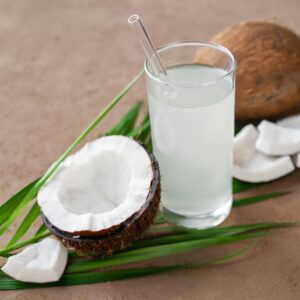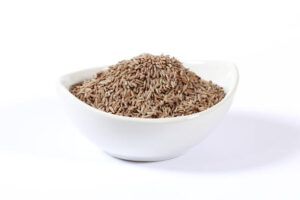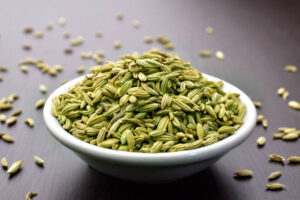
9 Indian super foods to prevent Acidity
Acidity is a common digestive disorder that affects many individuals. It occurs when there is an excess production of acid in the stomach, leading to symptoms like heartburn, indigestion, and a sour taste in the mouth. While there are medications available to alleviate these symptoms, incorporating certain superfoods into your diet can also help prevent acidity naturally. In this article, we will explore nine Indian superfoods that can aid in combating acidity effectively.
1.Understanding Acidity

Acidity, also known as acid reflux or heartburn, is a condition characterized by a burning sensation in the chest or upper abdomen. It is caused by the backflow of stomach acid into the esophagus, which irritates the lining of the esophagus and leads to discomfort. Understanding the causes and symptoms of acidity can help individuals manage this condition effectively.
2. What is Acidity?
Acidity is the result of excessive acid production in the stomach. The stomach naturally produces acid to aid in the digestion of food. However, when the acid production becomes excessive or the lower esophageal sphincter (LES) weakens, the acid can flow back into the esophagus, causing acidity.
3. Causes of Acidity
Several factors contribute to the development of acidity. Some common causes include:
Dietary Factors: Consuming spicy, fatty, or acidic foods can trigger acidity.
Obesity: Excess weight can put pressure on the stomach, leading to acid reflux.
Smoking: Tobacco smoke can irritate the stomach lining and weaken the LES.
Pregnancy: Hormonal changes during pregnancy can relax the LES, causing acidity.
Hiatal Hernia: This condition occurs when the upper part of the stomach protrudes into the chest cavity, increasing the risk of acid reflux.
Certain Medications: Some medications, such as nonsteroidal anti-inflammatory drugs (NSAIDs) and certain antibiotics, can contribute to acidity.
4. Symptoms of Acidity
The symptoms of acidity can vary from person to person, but common signs include:
Burning sensation in the chest or throat (heartburn)
Regurgitation of acidic fluid or food
Difficulty swallowing
Chest pain or discomfort
Nausea or vomiting
Hoarseness or a sore throat
Coughing or wheezing
5. Diagnosing Acidity
To diagnose acidity, a healthcare professional will review your symptoms and medical history. They may also perform certain tests, such as:
Upper Endoscopy: A flexible tube with a camera is inserted through the mouth to examine the esophagus and stomach.
Esophageal pH Monitoring: A probe is placed in the esophagus to measure the level of acidity over a period of time.
X-ray or CT Scan: These imaging tests can help identify any structural abnormalities or complications related to acidity.
2. Ginger: Nature’s Digestive Aid

Ginger has long been recognized for its medicinal properties and has been used for centuries in traditional medicine. Apart from its delightful flavor and aroma, ginger offers numerous health benefits, particularly in aiding digestion. In this article, we will explore the digestive benefits of ginger, its active compounds, and ways to incorporate it into your daily routine.
2. Ginger and Digestion
Ginger has been widely recognized for its ability to alleviate various digestive issues. It possesses natural compounds that can help stimulate digestion, reduce inflammation in the gut, and relieve gastrointestinal discomfort. Ginger’s digestive properties make it a valuable aid in maintaining a healthy digestive system.
3. Active Compounds in Ginger
The beneficial effects of ginger on digestion can be attributed to its bioactive compounds, including gingerol, shogaol, and zingiberene. Gingerol, in particular, is known for its anti-inflammatory and antioxidant properties, which contribute to its digestive benefits. These compounds work together to support optimal digestion and improve gastrointestinal health.
3. Tulsi (Holy Basil): Soothing the Stomach

Tulsi, scientifically known as Ocimum tenuiflorum or Ocimum sanctum, is a sacred plant in Hinduism and is often referred to as holy basil. It is native to the Indian subcontinent and is highly regarded for its medicinal properties. Tulsi has been used in Ayurvedic medicine for its versatile health benefits, including its ability to soothe the stomach and aid digestion.
2. The Significance of Tulsi
Tulsi holds a significant place in Indian culture and traditions. It is considered a sacred plant and is often grown in households and temples. The leaves of tulsi are used in various religious rituals, and people also consume tulsi tea or infusions as a way to benefit from its therapeutic properties.
3. Active Compounds in Tulsi
Tulsi contains a rich array of active compounds that contribute to its medicinal properties. Some of the key compounds found in tulsi include eugenol, rosmarinic acid, and ursolic acid. These compounds possess anti-inflammatory, antimicrobial, and antioxidant properties, which are crucial for maintaining a healthy digestive system.
4. Health Benefits of Tulsi for Digestion
Tulsi offers several benefits for digestive health:
a) Relieves Digestive Discomfort
Tulsi has carminative properties, which means it can help alleviate digestive discomfort such as indigestion, bloating, and gas. It promotes the release of digestive enzymes, which aids in the breakdown of food and improves overall digestion.
b) Soothes Stomach Irritation
Tulsi has a calming effect on the stomach lining, making it an excellent natural remedy for soothing stomach irritation and reducing acidity. It can provide relief from heartburn and acid reflux, promoting a more comfortable digestive experience.
c) Supports Healthy Gut Flora
Maintaining a healthy balance of beneficial bacteria in the gut is crucial for optimal digestion. Tulsi possesses antimicrobial properties that help combat harmful bacteria in the digestive tract while preserving the beneficial bacteria. This supports a healthy gut flora, promoting smooth digestion and overall gut health.
d) Reduces Inflammation
Inflammation in the digestive system can lead to various digestive disorders. The anti-inflammatory properties of tulsi can help reduce inflammation in the gut, preventing conditions such as inflammatory bowel disease (IBD) and promoting a healthy digestive environment.
5. Ways to Incorporate Tulsi into Your Diet
There are several ways to incorporate tulsi into your daily routine:
Tulsi Tea: Prepare a soothing tulsi tea by steeping fresh or dried tulsi leaves in hot water for 5-10 minutes. You can enjoy it plain or add a dash of honey and a squeeze of lemon for added flavor.
Tulsi Infusions: Add fresh tulsi leaves to your regular tea or herbal infusions for a refreshing twist and added digestive benefits.
Tulsi Pesto: Blend fresh tulsi leaves, garlic, nuts, Parmesan cheese, and olive oil to create a flavorful tulsi pesto. Use it as a spread or sauce for pasta, sandwiches, or roasted vegetables.
Tulsi in Curries: Add fresh tulsi leaves to curries, stews, and soups for a delightful aroma and digestive support.
4. Yogurt: Probiotic Powerhouse

Yogurt has been consumed for centuries and is enjoyed in various cultures around the world. It is made by fermenting milk with beneficial bacteria, resulting in a creamy and tangy product. Beyond its taste and texture, yogurt offers numerous health benefits, particularly when it comes to digestive health.
2. Understanding Probiotics-
Probiotics are live bacteria and yeasts that provide health benefits, especially for the digestive system. They help maintain a healthy balance of bacteria in the gut, supporting optimal digestion, nutrient absorption, and overall gut health. Probiotics can also boost the immune system and contribute to overall well-being.
3. Yogurt: A Natural Source of Probiotics-
Yogurt is one of the richest natural sources of probiotics. During the fermentation process, lactic acid bacteria, such as Lactobacillus and Bifidobacterium, convert lactose (the sugar in milk) into lactic acid. These beneficial bacteria remain alive in yogurt, providing probiotic benefits when consumed.
4. Health Benefits of Yogurt for Digestion-
Incorporating yogurt into your diet can offer several benefits for digestive health:
a) Improved Digestion-
The probiotics in yogurt help restore and maintain a healthy balance of gut bacteria. This can aid in the digestion and breakdown of food, ensuring better nutrient absorption and reducing the risk of digestive discomfort such as bloating and gas.
b) Enhanced Gut Health-
The presence of beneficial bacteria in yogurt contributes to a healthy gut microbiome. A balanced gut microbiome is essential for overall digestive health, as it supports a strong immune system, reduces inflammation, and helps prevent digestive disorders.
c) Alleviation of Digestive Disorders-
Regular consumption of yogurt may help alleviate certain digestive disorders, such as irritable bowel syndrome (IBS) and lactose intolerance. The probiotics in yogurt can improve symptoms associated with these conditions, including abdominal pain, bloating, and irregular bowel movements.
d) Boosted Immune Function-
A significant portion of the immune system resides in the gut. The probiotics in yogurt stimulate the production of immune cells, helping to strengthen the immune system and defend against harmful pathogens.
5. Jaggery: The Natural Sweetener

Jaggery is a traditional sweetener that holds a special place in many culinary traditions. It is commonly used in Asian, African, and Latin American cuisines, adding a unique flavor and depth to dishes. What sets jaggery apart from refined sugar is its unrefined nature and its distinct health benefits.
2. The Making of Jaggery
Jaggery is made through a simple and natural process. First, the juice extracted from sugarcane or date palm sap is heated to remove the water content. The concentrated juice is then left to cool and solidify, resulting in the formation of jaggery blocks or cones. This minimal processing helps retain the natural goodness of the raw ingredients.
3. Nutritional Composition of Jaggery
Jaggery is not just a sweetener; it is also a rich source of essential nutrients. It contains vital minerals such as iron, calcium, magnesium, and potassium. It is also packed with antioxidants, phytochemicals, and small amounts of vitamins, including B-complex vitamins. Unlike refined sugar, jaggery retains some of the beneficial compounds present in the original plant source.
4. Health Benefits of Jaggery
Incorporating jaggery into your diet can offer several health benefits:
a) Boosts Energy
Jaggery is a natural source of carbohydrates and can provide an instant energy boost. It releases energy slowly and steadily, making it an excellent choice for sustained endurance and maintaining optimal energy levels throughout the day.
b) Supports Digestion
Jaggery aids in digestion by stimulating the digestive enzymes and improving bowel movements. It acts as a gentle laxative, promoting regularity and relieving constipation.
c) Enhances Immune Function
The presence of antioxidants in jaggery helps strengthen the immune system and protect the body against various infections and diseases. It also has antimicrobial properties that can help fight against harmful bacteria.
d) Supports Respiratory Health
Jaggery is known for its ability to provide relief from respiratory ailments such as cough and cold. It helps soothe the throat and provides natural relief from congestion.
e) Regulates Blood Pressure
The potassium content in jaggery plays a vital role in maintaining blood pressure levels. It helps balance sodium levels in the body, reducing the risk of hypertension and promoting heart health.
5. Jaggery as a Substitute for Refined Sugar
One of the significant advantages of jaggery is its use as a healthier alternative to refined sugar. Refined sugar undergoes extensive processing, stripping it of its natural nutrients. Jaggery, on the other hand, retains its mineral content and offers a more wholesome sweetness.
When substituting jaggery for sugar in recipes, keep in mind that its flavor profile is different. Jaggery has a distinct caramel-like taste that can add depth to dishes. It pairs well with warm spices like cinnamon, cardamom, and ginger.
6. Coconut Water: Hydrating and Alkaline

Coconut water has gained popularity as a healthy beverage due to its unique combination of flavor and nutritional benefits. It is commonly found in tropical regions and has been enjoyed for centuries for its hydrating properties.
2. The Nutritional Composition of Coconut Water
Coconut water is not only low in calories but also rich in essential nutrients. It contains essential electrolytes such as potassium, sodium, magnesium, calcium, and phosphorus. Additionally, it provides vitamins like vitamin C, vitamin B-complex, and antioxidants. Coconut water is also a good source of dietary fiber and contains natural sugars.
3. Hydration Benefits of Coconut Water
One of the primary benefits of coconut water is its ability to hydrate the body. It is an excellent natural isotonic drink, meaning it replenishes the body with essential electrolytes lost through sweating. This makes it an ideal choice for hydration after physical activity or during hot weather. Additionally, coconut water is easily absorbed by the body, making it a quick and efficient way to rehydrate.
4. Alkalizing Properties of Coconut Water
Coconut water has alkalizing properties, which means it can help balance the pH levels in the body. While many foods and beverages can contribute to acidity, coconut water has an alkaline effect due to its mineral composition. Consuming alkaline foods and beverages can support overall health and help counteract the effects of an acidic diet.
5. Choosing and Storing Coconut Water
When selecting coconut water, opt for brands that offer pure, natural coconut water without added sugars or preservatives. Look for products that are minimally processed and packaged in BPA-free containers. Fresh coconut water can also be obtained directly from young coconuts, ensuring the highest quality and taste.
To store coconut water, keep it refrigerated to maintain its freshness and nutritional properties. Once opened, consume it within a few days to prevent spoilage.
6. Ways to Enjoy Coconut Water
Coconut water can be enjoyed in various ways:
Drink it plain: The simplest way to enjoy coconut water is to drink it straight from the container. It provides a refreshing and hydrating experience, especially on hot days.
Smoothies and juices: Add coconut water as a base for your smoothies or fruit juices to enhance their flavor and nutritional content.
Mocktails and cocktails: Incorporate coconut water into mocktails or cocktails for a tropical twist. It pairs well with fruits like pineapple, mango, and lime.
Freezing into ice cubes: Pour coconut water into ice cube trays and freeze them. These coconut water ice cubes can be added to beverages or used in smoothies for an extra burst of flavor.
7. Cumin Seeds: The Gut Calmer

Cumin seeds, scientifically known as Cuminum cyminum, have been used for centuries in traditional medicine and culinary practices. They are native to the Mediterranean region but are now cultivated and enjoyed worldwide. Apart from adding a distinct flavor to dishes, cumin seeds offer a range of digestive benefits.
2. The Nutritional Profile of Cumin Seeds
Cumin seeds are a rich source of nutrients that support overall health. They contain essential vitamins and minerals such as iron, magnesium, calcium, and vitamin A. Additionally, cumin seeds are packed with antioxidants and beneficial plant compounds that contribute to their medicinal properties.
3. Digestive Benefits of Cumin Seeds
Cumin seeds have long been recognized for their digestive benefits. Here are some ways in which they support digestive health:
a) Relieving Digestive Discomfort
Cumin seeds have carminative properties, which means they can help relieve digestive discomfort, including bloating, gas, and indigestion. The compounds present in cumin seeds help relax the gastrointestinal muscles, promoting smoother digestion.
b) Stimulating Digestive Enzymes
Cumin seeds stimulate the production of enzymes that are essential for proper digestion. These enzymes assist in breaking down food and facilitating nutrient absorption, promoting optimal digestive function.
c) Reducing Inflammation
Inflammation in the gastrointestinal tract can lead to digestive issues. Cumin seeds possess anti-inflammatory properties that can help reduce inflammation and soothe the gut lining, easing symptoms associated with conditions like gastritis and irritable bowel syndrome (IBS).
d) Alleviating Nausea
Cumin seeds have been traditionally used to alleviate nausea and morning sickness. The aroma and compounds present in cumin seeds can help calm the stomach and relieve feelings of queasiness.
4. Calming the Gut with Cumin Seeds
Cumin seeds act as a natural gut calmer due to their unique combination of compounds. These compounds, including essential oils and antioxidants, work together to promote a healthy gut environment. Consuming cumin seeds can help:
- Ease digestive spasms and cramps
- Improve bowel movements and prevent constipation
- Reduce the risk of digestive disorders and promote gut health
5. Using Cumin Seeds in Cooking
Cumin seeds are versatile and can be incorporated into various dishes. Here are a few ways to use cumin seeds in your cooking:
- Dry roast cumin seeds and grind them into a powder for use in spice blends, marinades, or curries.
- Temper hot oil with cumin seeds to release their flavor and aroma before adding vegetables or lentils.
- Sprinkle roasted cumin seeds over salads, soups, or roasted vegetables for added texture and taste.
- Infuse cumin seeds
8. Buttermilk: Cooling and Digestive

Traditionally, buttermilk was made by churning fresh cream or butter to separate the solids from the liquid. The liquid remaining after butter extraction was called buttermilk. Nowadays, buttermilk is commonly made by adding lactic acid bacteria to milk, which ferments the lactose and produces the characteristic tangy flavor.
3. Nutritional Composition of Buttermilk
Buttermilk is a nutrient-rich beverage that offers several essential nutrients. It is a good source of calcium, which is vital for strong bones and teeth. Additionally, buttermilk provides vitamins like vitamin B12, riboflavin, and phosphorus. It is low in fat and calories, making it a healthy choice for those watching their weight.
4. Digestive Benefits of Buttermilk
Buttermilk is renowned for its digestive properties. Here are some ways in which buttermilk aids digestion:
a) Probiotic Power
Buttermilk contains beneficial bacteria, commonly known as probiotics, that support a healthy gut. These live microorganisms help maintain the balance of good bacteria in the digestive system, improving digestion and nutrient absorption.
b) Lactose Digestion
The fermentation process involved in making buttermilk converts lactose, the naturally occurring sugar in milk, into lactic acid. This makes buttermilk easier to digest for individuals with lactose intolerance, as the lactose content is significantly reduced.
c) Relieving Digestive Discomfort
Buttermilk has a soothing effect on the digestive system, providing relief from common digestive issues such as acidity, indigestion, and bloating. It can help calm an upset stomach and promote overall digestive wellness.
5. Cooling Effects of Buttermilk
Buttermilk is known for its cooling properties, which make it a popular choice during hot summers or after spicy meals. The presence of lactic acid in buttermilk helps cool the body and reduce body heat, providing a refreshing and hydrating effect.
6. Incorporating Buttermilk into Your Diet
There are various ways to incorporate buttermilk into your diet:
Drink it plain: Enjoy a chilled glass of buttermilk on its own as a refreshing beverage.
Blend it into smoothies: Add buttermilk to fruit smoothies for a creamy texture and tangy flavor.
Use it in dressings and marinades: Substitute buttermilk for regular milk in dressings, marinades, or dips to add a tangy twist.
Make buttermilk-based dishes: Use buttermilk as an ingredient in pancakes, waffles, biscuits, or cakes for a light and fluffy texture.
9. Bananas: The Potassium Boost

Bananas, scientifically known as Musa sapientum, are native to tropical regions and are loved for their naturally sweet flavor and creamy texture. They come in a convenient natural packaging and are a popular choice for a quick and nutritious snack. Beyond their taste, bananas are packed with essential nutrients, including potassium.
2. The Importance of Potassium
Potassium is a mineral that plays a vital role in maintaining overall health. It is an electrolyte that helps balance fluids in the body, supports proper muscle and nerve function, and regulates blood pressure. Adequate potassium intake is essential for maintaining a healthy heart, promoting muscle strength, and supporting optimal cellular function.
3. Nutritional Value of Bananas
Bananas are a nutritional powerhouse. They are low in calories but high in essential nutrients. Here’s a glimpse of the nutritional content of a medium-sized banana:
- Calories: Approximately 105
- Carbohydrates: Around 27 grams
- Fiber: Approximately 3 grams
- Potassium: Approximately 400 mg
- Vitamin C: Around 10% of the daily recommended intake
- Vitamin B6: Approximately 20% of the daily recommended intake
- Magnesium: Around 8% of the daily recommended intake
10. Fennel Seeds: Aniseed for Digestion

Fennel Seeds: Aniseed for Digestion
Fennel seeds, scientifically known as Foeniculum vulgare, have been used for centuries in various cultures for their culinary and medicinal properties. These seeds have a mild licorice-like flavor and are often used as a natural remedy for digestive issues. Let’s explore why fennel seeds are considered aniseed for digestion.
2. The Flavorful World of Fennel Seeds
Fennel seeds are derived from the flowering plant Foeniculum vulgare, which is native to the Mediterranean region. These small seeds have a warm, sweet, and slightly spicy flavor, reminiscent of licorice or anise. They are often used as a spice in cooking, adding a distinctive taste to dishes such as curries, soups, bread, and desserts.
3. Nutritional Profile of Fennel Seeds
Fennel seeds are not only flavorful but also packed with essential nutrients. They are a good source of vitamins, minerals, and antioxidants. Here is a glimpse of the nutritional composition of fennel seeds:
- Fiber: Fennel seeds are rich in dietary fiber, which supports healthy digestion and helps maintain regular bowel movements.
- Vitamin C: Fennel seeds contain a moderate amount of vitamin C, which is essential for immune function and collagen synthesis.
- Potassium: Fennel seeds are a good source of potassium, a mineral that plays a vital role in maintaining fluid balance and supporting heart health.
- Antioxidants: Fennel seeds are rich in antioxidants, including flavonoids and phenolic compounds, which help protect the body against oxidative stress and inflammation.
4. Digestive Benefits of Fennel Seeds
Fennel seeds have long been used as a natural remedy for digestive discomfort. Here are some ways in which fennel seeds can support digestive health:
a) Relieving Indigestion and Bloating
Fennel seeds are known for their carminative properties, which means they can help alleviate indigestion, bloating, and gas. The compounds present in fennel seeds, such as anethole, fenchone, and estragole, help relax the smooth muscles in the gastrointestinal tract, promoting smoother digestion and reducing discomfort.
b) Easing Stomach Cramps
Fennel seeds have antispasmodic properties that can help relax the muscles in the digestive system, providing relief from stomach cramps and spasms.
c) Reducing Acid Reflux and Heartburn
Fennel seeds have been traditionally used to ease symptoms of acid reflux and heartburn. They help neutralize acidity in the stomach and soothe the lining of the esophagus, providing relief from discomfort.
d) Stimulating Appetite
Fennel seeds have a natural ability to stimulate appetite and improve digestion. They can be consumed before meals to enhance the digestive process and increase the release of digestive enzymes.
5. Incorporating Fennel Seeds into Your Diet
There are several ways to incorporate fennel seeds into your diet:
- As a Tea: Prepare a soothing fennel seed tea by steeping one teaspoon of crushed fennel seeds in hot water for 10 minutes. Strain and enjoy it warm.
- Spice Blend: Add ground fennel seeds to spice blends for marinades, rubs, or curries to enhance the flavor and reap the digestive benefits.
- Chewing Fennel Seeds: Chew on a teaspoon of fennel seeds after a meal to freshen breath, promote digestion, and reduce bloating.
- Roasted Fennel Seeds: Toast fennel seeds in a dry skillet until fragrant, then crush them and use as a seasoning for roasted vegetables or salads.
6. Precautions and Considerations
While fennel seeds are generally safe for consumption, it is important to keep the following precautions in mind:
- Allergies: Individuals with known allergies to carrots, celery, or other plants in the Apiaceae family may also be sensitive to fennel seeds. Exercise caution if you have any known allergies.
- Pregnancy: Pregnant women should consult their healthcare provider before consuming fennel seeds, as they may have an impact on hormone levels.
Conclusion-:
Incorporating these nine Indian superfoods into your diet can help prevent acidity naturally. Ginger, tulsi, yogurt, jaggery, coconut water, cumin seeds, buttermilk, bananas, and fennel seeds all offer unique properties that aid in digestion, reduce inflammation, and maintain a healthy pH balance in the stomach. By adopting a balanced diet that includes these superfoods, you can effectively manage and prevent acidity while promoting overall digestive health.

